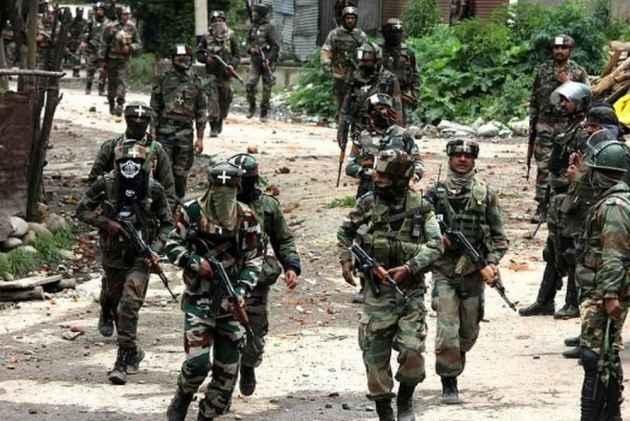Sanction Without Investigation? Centre’s Move Poses Threat to Democracy

Image Courtesy: Outlook
The Interlocutory Application (IA) filed by the Centre in March – regarding the FIR filed against Major Aditya Kumar of the 10 Garhwal Rifles – poses a threat to the Indian democracy. Major Kumar was named in an FIR filed by the police in Jammu and Kashmir regarding an incident, where the Army had opened fire on civilians in Shopian. The Army's narrative is that the civilians were pelting stones, and were not responsive to reason. Even if this version of the story is true, the IA is inherently dangerous. The reason is that it seeks to restrict the meaning of 'institution of legal proceedings'.
The IA was filed regarding a petition which, Major Kumar's father, a retired serviceman, had filed in the Supreme Court – praying for the FIR and subsequent proceedings to be quashed. The original petition was filed on the basis that legal proceedings would demoralise the armed forces and would stop them from discharging their duties effectively under the Armed Forces (Jammu & Kashmir) Special Power Act, 1990 (AFSPA). This Act itself is disputed within India, and has been condemned by the UN and international NGOs. However, that is a separate issue altogether.
Assuming that AFSPA is good in law—the SC has stated so in Naga People’s Movement for Human Rights v Union of India—an issue arises regarding how section 7 of the Act is interpreted. Section 7 states: “[N]o prosecution, suit or other legal proceeding shall be instituted, except with the previous sanction of the Central Government, against any person in respect of anything done or purported to be done in exercise of the powers conferred by this Act.” The government contends that the stage of filing an FIR is a part of the institution of legal proceedings. Therefore, it argues that even to admit an FIR under section 154 of the CrPC, prior sanction ought to be obtained.
The government prayed that the Judgement of the Court in General Officer Commanding v. CBI & Anr. be referred to a larger Bench. This is based on the fact that this 2012 Judgement held that the institution of legal proceedings under section 7 of AFSPA refers to the stage of congisance. Criminal justice follows a particular procedure – as laid down in the CrPC;
- Submission of first information or complaint to a Magistrate
- Registering a first information report
- Investigation
- Filing the chargesheet
- Cognisance of the offence by the Magistrate
- Framing the charges
- Trial
The original petition too had raised objections in this regard. In the petition, it was submitted that registering the FIR amounts to instituting criminal proceedings, similar to the government's line of argument. However, on what basis can the sanction be granted or denied, in this case? If, for example, the position of the government and the petitioner is the correct interpretation, then it means that before the police can even investigate the offence, sanction has to be sought. However, the Defence Ministry is nowhere near the 'encounter' sites. They will have to rely on reports from the Army, which, in the spirit of camaraderie may tend to protect the men in uniform. Further, court martial proceedings are insulated from the scope of the Right to Information Act, 2005. Therefore, if an internal inquiry by the armed forces can be compromised, the only option remains is that the police should investigate, unless a special agency is created solely for this purpose.
Therefore, for the people living in a conflict zone – or a declared 'disturbed area' – knowing that the armed forces too can be brought to justice is a consolation. The record is rife with example of excesses being committed by the armed forces in areas under AFSPA. Major Leetul Gogoi's case is one recent example, wherein he tied a civilian onto a jeep – essentially creating a 'human shield'. In this regard, the Court had attempted to bring some degree of accountability to the Act by making sanction a requirement at the stage of cognisance.
Get the latest reports & analysis with people's perspective on Protests, movements & deep analytical videos, discussions of the current affairs in your Telegram app. Subscribe to NewsClick's Telegram channel & get Real-Time updates on stories, as they get published on our website.
























